Features
Things So Much Clearer
Pearl Jam Albums Ranked Worst To Best
by Benjamin Ray
One of the definitive rock groups of the last 20 years, Pearl Jam started out huge and has retained a large, loyal following since their heyday at the height of the grunge explosion. Never really a grunge band, Pearl Jam has embraced classic rock, arena rock and some punk in equal measures, but the true treat is their legendary, marathon live shows, which include deep cuts, choice covers, audience participation and a never-ending intensity and joy. Their music has matured in the last decade along with their audience, but the whole of their catalog remains a triumph of exciting, classicist, unpretentious, emotional rock ‘n’ roll, and the band members remain committed to social and political causes. Below is a ranking of their 10 studio albums from worst to best.
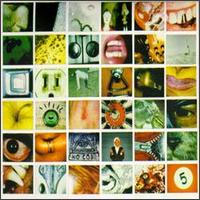 10. No Code (1996)
10. No Code (1996)
Experimentation is fine. The band indulged in plenty of it on Vitalogy and came up with a great record. But after the Ticketmaster incident, the furor of the commercial grunge era, and the album recorded with Neil Young, Pearl Jam took some time to settle down and explore subdued acoustic themes. The resulting album No Code isn’t so much bad as it is dull; even the solid rockers, like “Hail Hail” and “Red Mosquito,” seem worn out (save for the short thrasher “Lukin”). “Off He Goes” is the best example of this subdued approach, though, a heartfelt ode to a friend that showcased a side to the band not many knew existed.
9. Lightning Bolt (2013)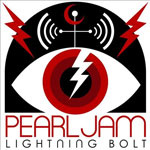
As Pearl Jam hits middle age, they have reached a sort of ambassador status, carrying the torch for classic rock like The Who but staying true to their musical ideals. They can still turn out rousing punk-rockers like “Mind Your Manners” and hit emotional highs like “Pendulum,” and most of this disc is enjoyable for fans (check out the bassline on “My Father’s Son”) but unlikely to win many converts. It’s the kind of album they should be making at this point in their career, and if it is rarely exciting, it’s always rock solid.
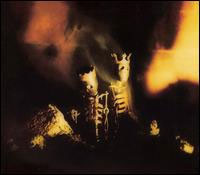 8. Riot Act (2002)
8. Riot Act (2002)
Just as No Code followed the more exciting Vitalogy, so did the subdued Riot Act follow the superior Binaural and mark the start of the band’s second phase. Much of the music is mellower than before, with a warm, burnished sound born of life experience. The visceral rocker “Save You” is a standout from the rest, while “Thumbing My Way,” “I Am Mine” and “You Are” are highlights that point the way forward.
7. Backspacer (2009)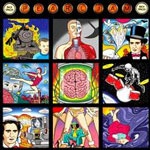
Probably the most fun record in the band’s catalog – not a word normally associated with Pearl Jam albums – Backspacer flies by at 36 minutes and 11 songs. That’s not to say the music is carefree or lighthearted, but that it’s the least serious the songs have been since Vs. without resorting to clichés of youth. The first half is the band’s garage rock fantasy, rollicking from “The Fixer” to “Got Some” to “Johnny Guitar,” before opening up to the expansive, moody “Speed Of Sound” and the lovely acoustic solo “Just Breathe,” probably the loveliest song Vedder has ever recorded. The stronger songs on here make the lesser songs pale by comparison, especially in the middle of the disc, but it’s still a solid rock record without pretense or affectations in a year (2009) when that was sorely needed.
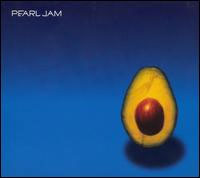 6. Pearl Jam (2006)
6. Pearl Jam (2006)
The avocado album! Coming off the downbeat Riot Act and a four-year recording hiatus, Pearl Jam roared back with the robust, frenzied anti-war rocker “World Wide Suicide” and their eponymous eighth album. The songs simmer with urgency and speed, rocketing through “Comatose,” “Life Wasted” and “Marker In The Sand” before slowing down a tad for “Unemployable” and the acoustic “Gone.” As with Backspacer, there are a few meandering midtempo cuts that don’t stack up to the rest, but it’s all forgiven by the seven-minute closer “Inside Job,” a slow-burning epic with a long, haunting instrumental open and impassioned vocals (as if Vedder has any other kind) that sounds like nothing the band has done before or since.
5. Yield (1998)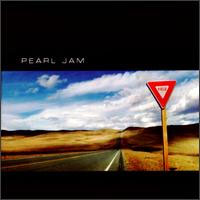
Perhaps sensing the meandering acoustical tendencies of No Code didn’t sit well with fans, the band sharpened that approach and blended it with the harsh near-punk of Vs. The result could have been a stylistic mess, but instead, it’s an engaging disc with moments of low-key reflection broken up by shattering neo-punk rockers like “Do The Evolution” and “Brain Of J.” While those moments are necessary, it’s the slower numbers – like the underrated “No Way,” “MFC,” “In Hiding” and “Given To Fly,” which manages to be muted yet majestic at the same time – that prove that bombast is not the only way to affect change. It was clear at this point that the band was moving away from the sound that made them famous, and one wishes that this was a little more equal parts rock and reflection, but it’s still an engaging disc that gets better with age.
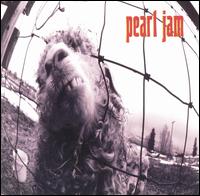 4. Vs. (1993)
4. Vs. (1993)
One heck of a sophomore release, Vs. shies away from the expansive, moody sound of the debut and turns to faster tempos, harsher production, and biting lyrics, seemingly more inspired by the Buzzcocks than Neil Young this time out. The opening triptych of “Go,” the thrashing “Animal,” and the moving, elegant acoustic “Daughter” is one of the better triple-openers of the ‘90s, but the soaring “Rearviewmirror” steals the show. The songs that steer angrier are the least effective, such as “Leash,” “Blood,” and the satirical “Glorified G,” but the signs of experimentation in the drum-led “W.M.A.” and the sinister “Rats” are two good examples of what would become a trend. An uneven album, but necessary to understanding the band’s personality.
3. Binaural (2000)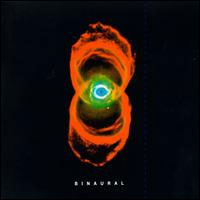
In which former Soundgarden drummer Matt Cameron joins the band and shakes things up after Yield. Gaining Cameron and some radio airplay for the (annoying) cover of the oldie “Last Kiss” rejuvenated the band, and their first album of the new millennium set the stage for the rest of their career. Three garage rock tunes under three minutes each kick off the disc, announcing a return to post-1993 form, before the Pink Floyd-influenced “Nothing As It Seems” and the layered “Insignificance” present themselves as two of the band’s best songs. The pensive “Thin Air” and “Of The Girl” remain subdued highlights, and if the disc falls apart a little bit toward the end (“Rival” is particularly grating), it’s still a solid classicist rock album from a group that was still standing and ready to reward its longtime, loyal fans.
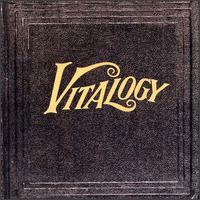 2. Vitalogy (1994)
2. Vitalogy (1994)
An absolutely fascinating alt-rock record 20 years after its release, this disc is where Pearl Jam indulged all its tendencies to experiment, consciously shedding the grunge tag and the hangers-on from the scene. No way a band on its third record would release something like “Bugs,” “Hey Foxymophandlemama, That’s Me,” or “Aye Davanita” unless they were trying to make a statement, and make it they did. The intense “Spin The Black Circle” announced both an old-school love of vinyl before that was a thing, winning the band a Grammy in the process (Vedder’s quote: “I don’t really know what this means.” The documentary PJ20 would later show that Stone Gossard keeps his locked up in a dusty corner of his basement). “Not For You” is a rebuke to the aforementioned hangers-on and a rallying cry to true fans – and a great song to boot – while “Betterman,” “Corduroy” and “Immortality” are among the band’s best, most heartfelt songs. Even the lesser-known songs fire on all cylinders, especially “Tremor Christ” and the mournful “Nothingman.” Taken with the admittedly hard-to-love experimental songs, it all adds up to one of the strangest, most personal and best rock records of the decade.
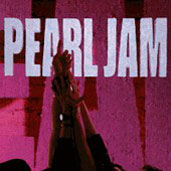 1. Ten (1991)
1. Ten (1991)
There is every rock album of the last 25 years, and then there is Ten. It’s that simple, but it got overshadowed a bit by Nevermind coming out the same year and the hype and zeitgeist that followed Nirvana. To this day, top rock album countdowns routinely put that album near the top of the list and, if Ten makes it, somewhere near the middle or bottom. They are wrong. This is a flat-out stunning album, an emotional, moody, hard rock powerhouse that the band never tried to imitate. Part of this is the echo-heavy arena-rock production of Brendan O’Brien, and the band has never been that fond of how the finished work sounded, but even the 20th anniversary remix that stripped away the echo only underscored how excellent the songs really are. Conversely, the production is what makes the original album so much better, as the serious themes of homelessness, mental breakdown, child abuse and neglect, school shootings, and hope among the ruins are given extra weight by the layered vocal harmonies and stadium-size guitar work. Mike McCready’s playing work is phenomenal on the anthemic “Alive,” the charging “Even Flow,” the rampaging “Porch” and the more subduded, vaguely psychedelic “Garden,” but it is with “Jeremy” that the band truly found its direction and spirit, creating the best song of the decade. As with pretty much every PJ album, the final song is a bit of a downer, but when Vedder reaches into his upper range to ask for release, you actually feel it through the speakers. Ten is nearly flawless; the fact that it is a debut is even more impressive, and it remains a prime example of what rock music can and should be.